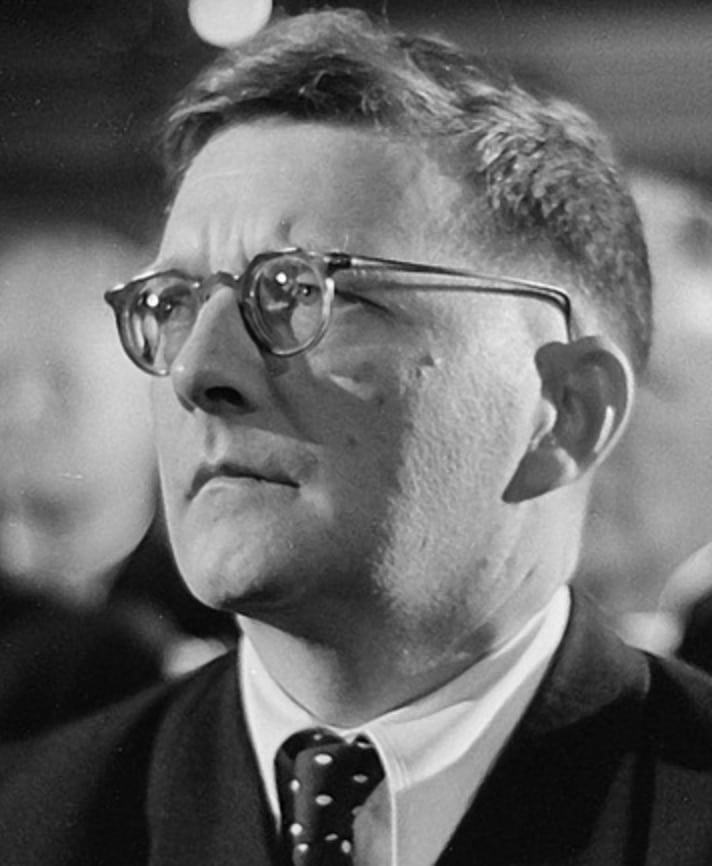
Dmitri Shostakovich was born on September 25, 1906 into a middle-class family in St. Petersburg, Russia (now known as Leningrad).. His father was an engineer, and his mother was a talented pianist. He showed musical talent from an early age, and by the age of 13, he entered the Petrograd Conservatory (later renamed the Leningrad Conservatory) to study composition and piano.
In 1926, at the age of 19, he completed his First Symphony, which gained him national recognition. His early works were well-received, and he gained the support of influential composers like Sergei Prokofiev. However, his career took a dramatic turn in 1936 when Joseph Stalin’s government criticized his opera “Lady Macbeth of Mtsensk” as being too modernist and formalist, which led to a period of intense scrutiny and fear of persecution.
To survive in the repressive political climate, Shostakovich altered his musical style to align with Soviet principles while embedding subversive elements within his compositions, often characterized by irony, satire, and dark humor. Despite the political pressures, he continued to compose prolifically, creating a wide range of works, including symphonies, chamber music, film scores, and operas.
Shostakovich’s most famous works include his symphonies, particularly the Symphony No. 5 (Visit : https://www.youtube.com/watch?v=WNK5Xwn-Vg4 and Symphony No. 7 (titled “Leningrad Symphony”). He also composed several string quartets, with the String Quartet No. 8 being one of the most emotionally charged and personal compositions. Shostakovich’s film scores for classics like “The Gadfly” and “Hamlet” are well-regarded. His opera “The Nose” and ballet “The Bolt” are also notable contributions to the world of classical music.
Shostakovich lived through the tumultuous periods of World War II and the Cold War, facing continued political pressure and censorship. In his later years, he received numerous awards and honors, both in the Soviet Union and internationally. In later life, Shostakovich suffered from chronic ill health, but he resisted giving up cigarettes and vodka. In 1958, he suffered from poliomyelitis that forced him to give up piano playing. He also suffered heart attacks in 1966 as well as several falls in which he broke both his legs. He passed away on August 9, 1975, in Moscow, Russia, leaving behind a vast body of work that continues to be celebrated for its emotional depth and cultural significance. Shostakovich’s music is characterized by its ability to convey the human experience in all its complexity, from moments of intense anguish and despair to moments of triumph and hope. Dmitri Shostakovich’s legacy endures through his music, which remains a powerful representation of the struggles and triumphs of the 20th century in Russia and beyond. His compositions continue to be performed and studied by musicians and scholars worldwide.
